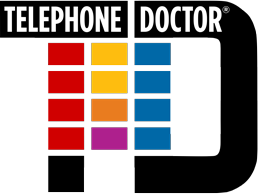By Nancy Friedman, Keynote Customer Service Speaker, President Telephone Doctor Customer Service Training
Doesn’t matter what you’re selling or providing, if you’re in business you probably have the same concerns. How do we keep our clients, patients, guests, customers or whatever you want to call them, you name it, happy and coming back? That’s the big question.
Sadly, there’s not just one skill and definitely there are more than 3, but in order to get you off on the right foot here are 3 big ones you can start with today.
These skills, ideas, tips and techniques are solid BASIC techniques. They are ‘real.’ Pay attention.
* Listening Skills – “HUH?” “WHAT DID YA SAY?” and other caustic phases like that won’t do. Every time you ask a customer what they said is a red flag to them. It simply says “I wasn’t paying any attention to you.”
Getting their order wrong says you weren’t listening/paying attention. Sending the wrong information says you weren’t listening/paying attention. And that goes for whether you’re a fast food or a service provider.
Remember. We hear, but are we really listening? Are we paying attention? If they really don’t ‘hear’ the name, request, order or problem on the phone or in person, we suggest the simple truth. “My apologies, I know you just told me “XX” and I missed it. One more time please.”
* Sympathy and Empathy – And being sure they know the difference.
* Sympathy – Sincerely feeling badly something happened and acknowledging it.
* Empathy – Understanding how a customer feels that something happened and acknowledging it.
Not acknowledging a situation is big cause for your customer to take their business elsewhere. It’s not always possible to empathize with someone if you really haven’t experienced it yourself. So to say “I know how you feel,” is semi- useless. No one can really know how someone else feels. We can say, “That’s frustrating, I can’t imagine how I’d react.” Or something of that sort. But to tell someone you know how they feel? That’s a no no. Big time.
* The Ability to Apologize Immediately and Properly
Believe me, “SORRY ‘bout that” is NOT an apology. It’s a cliché. When we screw up, make a mistake, or do something wrong, the words need to be, “My apologies.” Not, “Sorry ‘bout that.”
Wrong change? Wrong order or wrong information? It’s “MY APOLOGIES.” “Sorry ‘bout that” is very dismissive. It’s a real non-apology.
They say employees can only grasp 3 items at one time and for your information, it takes 21 days to change a habit. Sometimes longer. These are not overnight changes. Like a sandwich, one bite at a time.
Watch it work.

